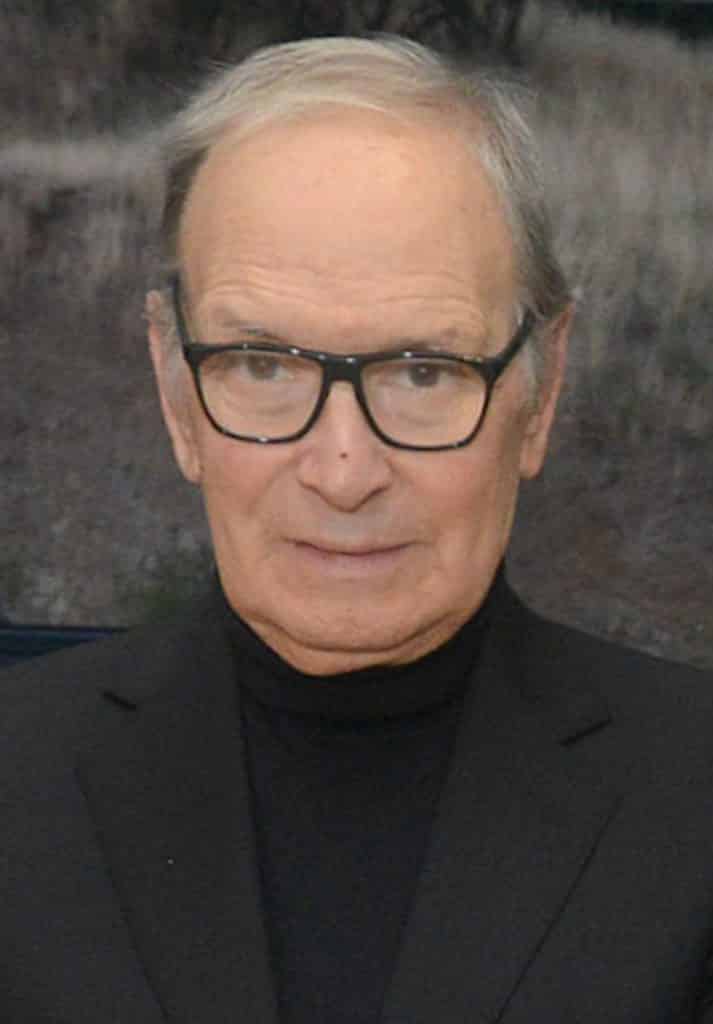Italy: it’s not just about pizza, pasta, and stunning buildings. This country has a deep and rich history, and much of that includes music. Italian composers have shaped music in countless ways, with their influence stretching from ancient hymns all the way to today’s movie soundtracks.
In this blog post, we’re going to take a look at ten of the greatest Italian composers that you really should know. These musicians aren’t just important to Italy; they’ve made waves in the world of music that still ripple to this day. So let’s tune in and discover these Italian maestros together.
1. Antonio Lucio Vivaldi
Up first is a name that rings synonymous with Baroque music: Antonio Lucio Vivaldi was born in Venice in 1678. Known not only as a renowned composer, he was also a skilled violinist and a music teacher, and served as a Roman Catholic priest, demonstrating his multifaceted talents.
Growing up, music was a constant companion in Vivaldi’s life. His father, a professional violinist, introduced him to the instrument and guided his early steps in music. It was during his teenage years that Vivaldi started delving into the world of composition.
The prime of Vivaldi’s career came in his mid to late 20s when he worked as a violinist at an orphanage. It was during this time that he composed many of his most celebrated pieces. Throughout his career, he produced a stunning repertoire of at least 50 operas, with The Four Seasons securing its place as his most iconic work.
The later stage of Vivaldi’s career took him to Vienna. Unfortunately, his popularity dwindled, and he faced financial hardships. Vivaldi’s journey ended at the age of 63, succumbing to internal infections. Despite his unfortunate demise, his extraordinary contributions to the world of music remain an enduring testament to his genius.
Related: Learn more about him in our facts about Antonio Vivaldi post here.
2. Giuseppe Verdi
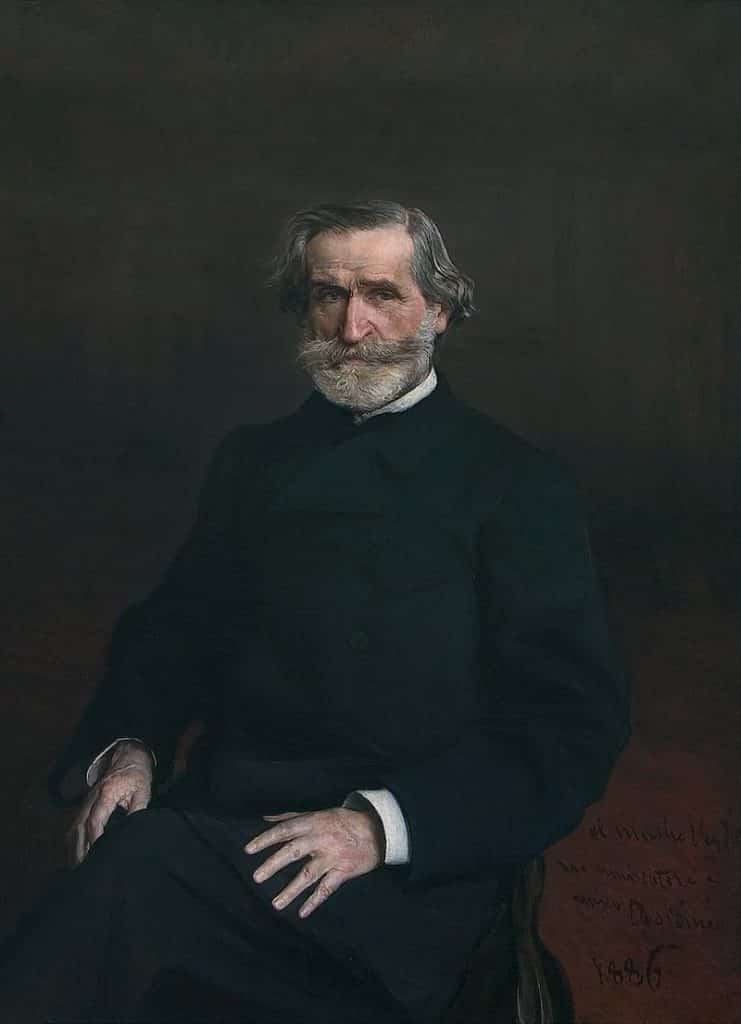
Guiseppe Fortunino Francesco Verdi was an opera composer born in 1813. His family was not a musical one, but he did learn to play the organ at the local school at the age of six.
Verdi was so drawn to music that his parents bought him his own spinet, and he became a paid organist for the local church at just eight years old.
At age 12, he began studying with the director of a music school and co-director of the Philharmonic Society. During his teen years, he began to compose. By his 20s, Verdi was a leader of the Philharmonic Society.
He wanted to attend the Conservatory in Milan but was not accepted. Nevertheless, he persisted and eventually became the director of the Busseto school in his hometown. He married and had two children, but both died young.
Verdi was finally asked to work on an opera in Milan in 1837. His wife died young while he was composing his second opera.
Despite his tumultuous personal life, Verdi went on to compose several well-known operas throughout Italy. Aida is his most timeless and famous, with Otello (based on Shakespeare’s Othello) and Nabucco topping the list as well.
Verdi spent time in his later career teaching and mentoring, eventually setting up a home base in Paris. He remarried and became active in Italian politics and philanthropy. In 1901, he passed away after suffering a stroke.
3. Claudio Monteverdi
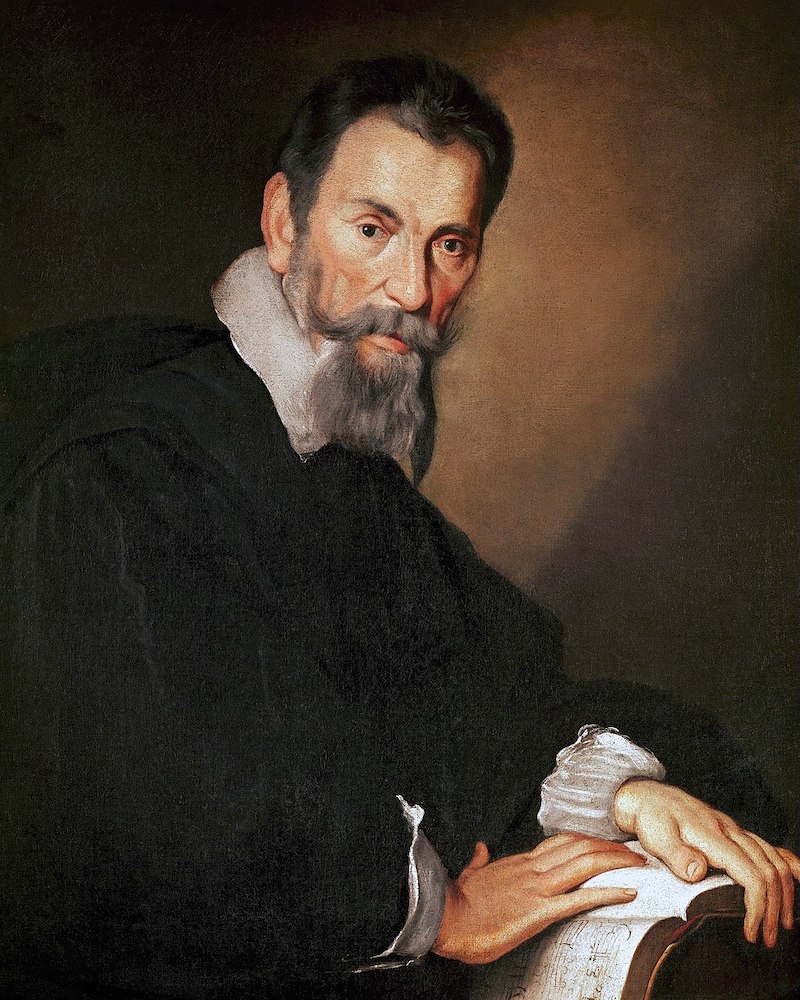
Born in Cremona in 1567, Claudio Giovanni Antonio Monteverdi was a composer, string instrumentalist, and choirmaster. Like Vivaldi, he was also a priest.
He composed both religious and secular music and is also thought of as one of the greatest contributors to the opera movement between the Renaissance and Baroque periods.
There are rumors that he sang in the Cathedral choir and studied at Cremona University, but officially, very little is known about his musical training. We do know that he published his first piece, a collection of sacred songs, at just 15. He also played strings in the Court of Duke Vincenzo.
In the early 1600s, Monteverdi’s work was called into controversy by theorist Giovanni Maria Artusi, who questioned Monteverdi’s musical taste and approach. This was made even harder by his wife’s untimely death.
Monteverdi persisted and published the opera L’Orfeo and many sacred pieces. When Duke Vincenzo died in 1612, Monteverdi was not able to impress his successor.
Just a year later, he was able to fill the post of maestro at the San Marco Basilica in Venice. He was commissioned for many pieces throughout Italy, taking a break during the 1630s when parts of the nation were riddled with the plague.
In the 1640s, he suffered a bit of a fallout with the church and poured himself into opera. He revised his earlier piece L’Arianna and composed several new ones before passing away of an illness in 1643.
4. Giacomo Puccini
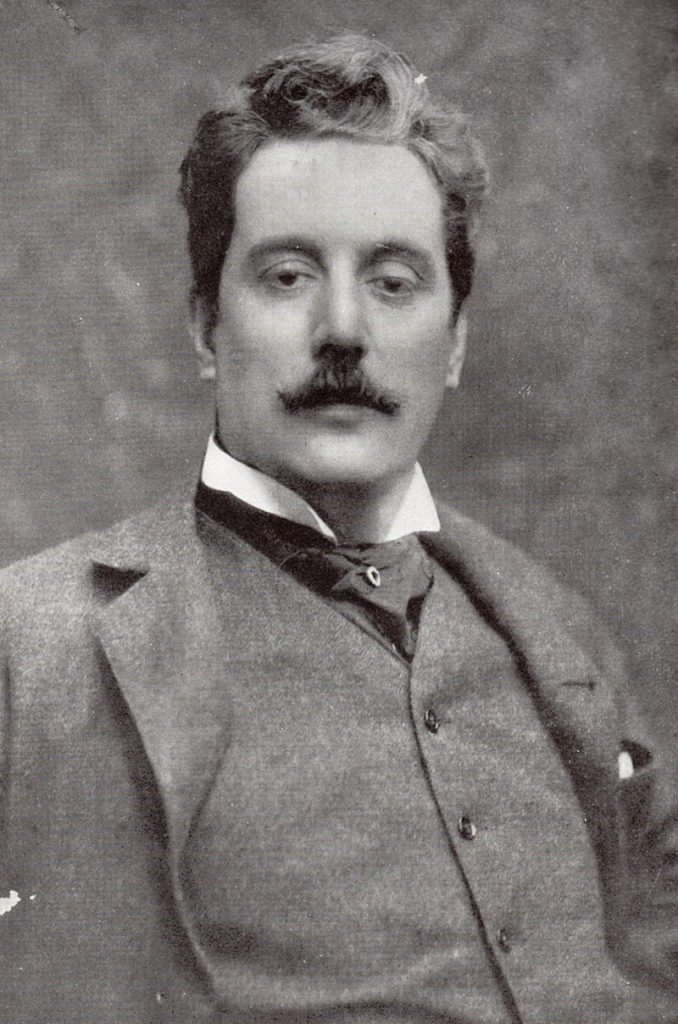
Giacomo Puccini was another well-known member of the great Italian opera composers. He was born in Lucca in 1858 to a very musical family full of composers. They were especially active in the music of the Cattedrale di San Martino.
Puccini began as a chorister and organist. His studies consisted of the Pacini School of Music in Lucca and the Milan Conservatory, to which he received a grant from Queen Margherita.
Puccini’s first composition was Capriccio sinfonico, written for the orchestra during his studies. He quickly began composing operatic works after that in collaboration with other great composers.
La bohème and Tosca are two of the most notable pieces from the height of his career. Madama Butterfly is also a famous piece, although most people do not realize its completion was delayed significantly due to a near-death car accident.
In his later career, Puccini lived a more quiet life. He did compose an ode to Fausto Salvatori to celebrate Italy’s WWI victories, but he was not nearly as politically active as Verdi. He passed away in 1924 of throat cancer brought on by years of smoking.
5. Ennio Morricone
A modern composer, Ennio Morricone was known for his eclectic musical style. He composed classical pieces as well as almost 500 movie and television scores. Additionally, he enjoyed conducting, orchestrating, and playing trumpet.
Morricone was born in Rome in 1928. His father was also a professional trumpet player, and he taught Morricone early to read music and play multiple instruments. He began composing at age six.
The trumpet stuck with him, and at the age of 12, he attended the Saint Cecilia Conservatory to study it further. From here, he was chosen to be part of the Orchestra of the Opera under Carlo Zecchi.
Some of Morricone’s most famous pieces include his film scores for A Fistful of Dollars, Exorcist II, The Untouchables, and especially The Good, the Bad, and the Ugly, which was inducted into the Grammy Hall of Fame. These scores span a wide variety of film genres.
After a long and successful career that also included jazz bands and orchestral performances, Morricone passed away at age 91 following a fall.
6. Domenico Scarlatti
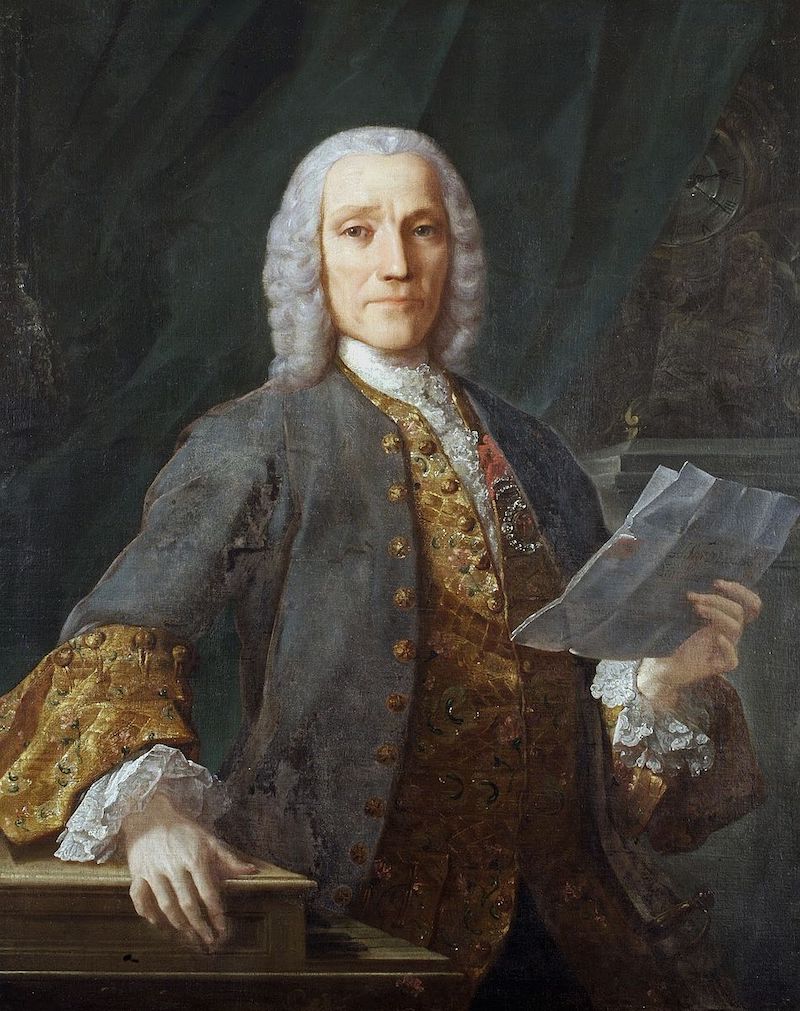
Guiseppe Domenico Scarlatti was a Baroque composer who also contributed to the birth of the Classical movement throughout his career.
He was born in Naples in 1685, the same year as other great European composers Johann Sebastian Bach and George Frideric Handel.
Scarlatti’s first music teacher was his composer father. In his 20s, he was offered the position of composer and organist of the Royal Chapel of Naples.
He then traveled around Italy and eventually to Portugal and Spain, composing for various European royalty. Most of Scarlatti’s compositions, including his most famous 30 Essercizi per gravicembalo (Exercises for Harpsichord), were not published until after his death.
Scarlatti’s unique style reflects his travels around Europe. His works were infused with Iberian folk elements and Spanish guitar. He passed away at the age of 71 in Spain.
7. Giovanni Pierluigi Da Palestrina
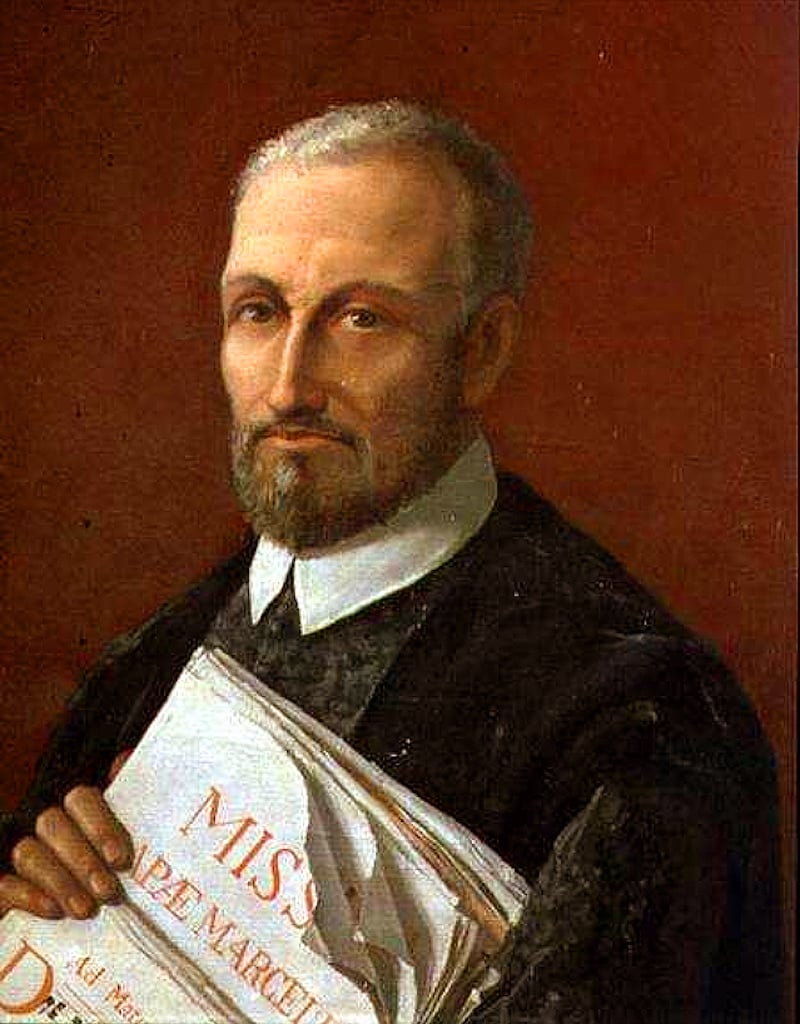
Born in 1525, Giovanni Pierluigi da Palestrina was a composer of sacred music during the Renaissance era. His mother died when he was 10 years old, shortly after which he is documented as being a chorister at the Santa Maria Maggiore.
He began studying music during the polyphony movement, the first attempt by musicians to create chords and harmonies by playing multiple lines of music simultaneously.
Throughout his career, Palestrina served as organist and composer for a variety of sacred chapels throughout Italy. He is said to have been one of the greatest influencers of sacred music.
He suffered financial distress and the loss of his brother and wife during the plague. However, he remarried a wealthy woman, which freed him to compose until his death from pleurisy in 1594.
8. Gioachino Antonio Rossini
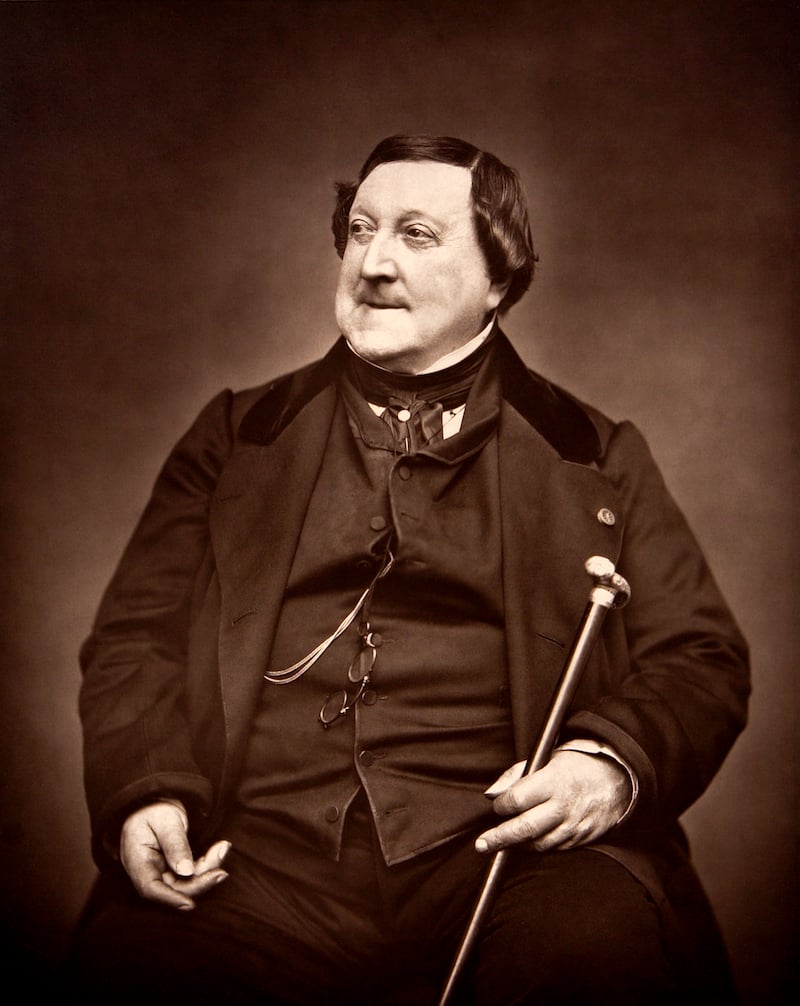
Born in Pesaro, Italy, in 1792, Gioachino Antonio Rossini was a composer of opera, chamber, piano, and sacred music. His father and childhood music teacher was a well-known trumpet player.
Rossini also studied with a local priest, Guiseppe Malerbe. By the age of 12, he had already composed six sonatas by the age of 12.
He served a couple of prison sentences between 1790 and 1800 for insubordination to authorities and political activism.
Rossini composed his first operas between 1810 and 1815, beginning with La cambiale di matrimonio.
During the next five years, he moved his career to Naples, where he wrote a version of Otello that was liked but not nearly as famous as Verdi’s later version.
Hoping to have more success elsewhere, he moved to Vienna and London between 1820 and 1824. He enjoyed some success but moved on to Paris to compose a grad opera for the French Royal Academy of Music.
His original plans were derailed with the death of Louis XVIII, but he did manage to compose some popular pieces, including Guillaume Tell, one of his last before an early retirement. Rossini passed away from colorectal cancer in 1868.
9. Ludovico Einaudi
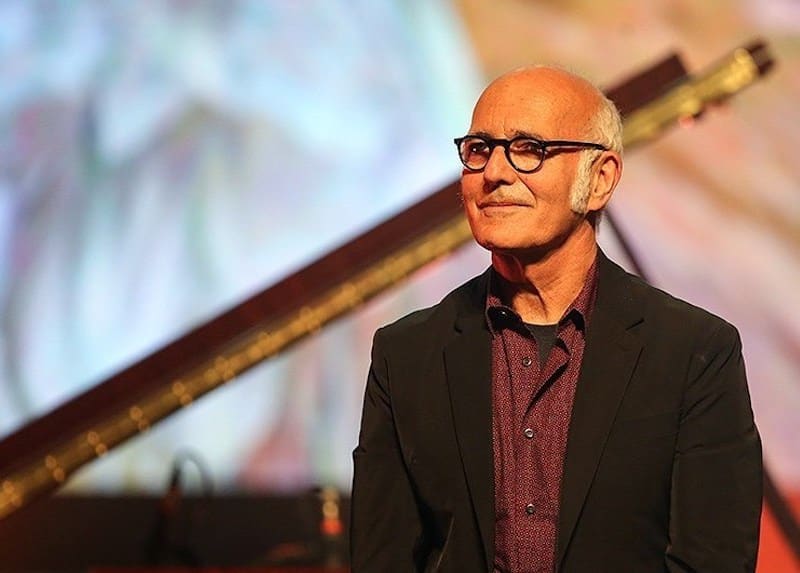
Ludovico Einaudi is a modern composer and pianist. He was born in 1955, the grandson of Italian president Luigi Einaudi. His mother was a pianist, and his maternal grandfather was also a pianist and opera conductor.
When he began his career in the 1980s, he focused on classical music. He has since expanded his compositions to include rock, pop, folk, world music, and music for television and film scores.
Einaudi was only a teenager when he began composing music. He studied at the Conservatorio Verdi in Milan and immediately after began an orchestration class and earned a scholarship to the annual Tanglewood Music Festival in the United States.
He began composing movie and television scores in the 1990s, starting with Da qualche parte in città and the award-winning Acquario.
He went on to win and be nominated for several other Italian and British films and television shows, including an Oscar nomination for Fuori del mondo.
He also composed the trailer music for the American blockbuster Black Swan. Ludovico Einaudi remains an active composer to this day.
10. Niccolò Paganini

Hailing from Genoa, Niccolò Paganini was born in 1782 to a musical family. His father was a part-time mandolin player.
Paganini began learning mandolin from his father at age five, switching to the violin two years later. He was talented from the beginning and earned many musical education scholarships.
He outgrew the abilities of his own teachers at an early age, so his father traveled far and wide to find mentors who could continue to help him grow.
Historical records suggest that Paganini picked up the guitar during the French invasion of Italy during the late 1790s, but that he preferred to have an intimate relationship with the instrument rather than performing it for the public.
He continued to become famous for the violin in his late teens and early 20s, meanwhile becoming infamous for his habits of gambling and womanizing.
Throughout the 1800s, Paganini took his career on the road. He played concerts in every major European city, and he was awarded the Order of the Golden Spur by Pope Leo XII in 1827.
His performances were often canceled and rescheduled as he struggled with many illnesses, thought to include Marfan syndrome, syphilis, and tuberculosis.
He ended his concert career and attempted to set up a casino in Paris in 1836. It failed miserably, and he died four years later of a hemorrhage, completely broke.
11. Nino Rota
Born Giovanni Rota Rinaldi on December 3, 1911, in Milan, Italy, Nino Rota was a distinguished Italian composer, pianist, conductor, and academic renowned for his film scores.
Showing prodigious talent from a young age, Rota composed an oratorio and an opera by the time he was 13. His early musical education was enriched by studies at the Curtis Institute of Music in Philadelphia from 1930 to 1932, where he won a scholarship and was taught composition.
Rota’s career in music spanned nearly half a century, during which he became most famous for his work in cinema, composing music for over 150 films. Despite his extensive filmography, he also made significant contributions to classical music, including operas, ballets, and orchestral works.
Some of his most celebrated work includes the scores for Federico Fellini’s films, such as La Dolce Vita and 8½, and the iconic music for Francis Ford Coppola’s The Godfather series, for which he won an Academy Award.
Nino Rota passed away on April 10, 1979, leaving behind a legacy as one of the most influential composers of film music in the 20th century.
Summing up Famous Italian Composers
Thanks to the work of these 10 composers, the musical landscape of Italy has remained vibrant from the 14th century through today.
Their legacy lives on in timeless sacred hymns sung in Catholic masses to this day, as well as in movie scores setting the tone on the big screen.
These talented composers have played key roles in the transition of Italian music throughout the ages.

